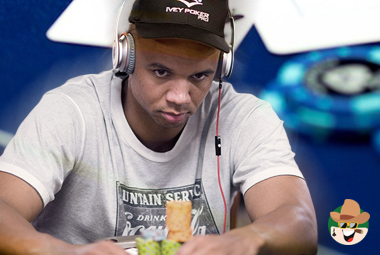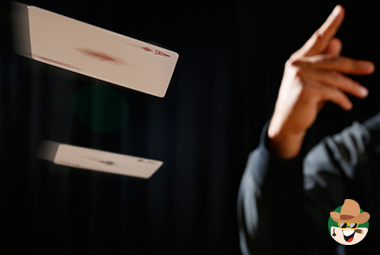

During my four decades of playing poker, I have observed the actions of many winners and losers. There is one characteristic that most winners have which is not to be denied: the willingness to take a risk.
While many players are content to just lay back and wait for the best cards to come, a risk taker does not follow that rule.
The risk taker -- people like Doyle Brunson, Phil Hellmuth, Daniel Negreanu or Phil Ivey -- often to into a pot with the worst hand and use it to dislodge players who have premium hands.
This is part of their arsenal of weapons for winning at poker. While I admit this technique cannot be learned overnight, it is a very powerful tool if properly used.
You go into a pot with pocket aces or kings, the board flops 7-5-10, and you come out betting. A player calls. A jack falls on fourth street and this time when you bet, the player raises with his two small pairs and scoops the pot.
That is why you see good players calling raises in position with bad cards. They have the position to see how you react to the flop and will act accordingly. Sometimes they will make outrageous bluffs which will occasionally be caught. Risk takers will do that and shrug off the loss.

Good poker players seem to have an uncanny sense of timing as to when to play bad cards. They will do it to slow or stop a player's winning streak. Sometimes, of course, it will backfire, but when it works, it can change the course of the game.
There are many ways for you to become a risk taker. Before you receive your cards, you may tell yourself, 'This time I will play like I have pocket aces regardless of the flop.' With that mindset, you don't even have to look at the cards on the board. Just raise and bet. If another player comes out betting, throw caution to the wind and raise them. Sometimes you will win, sometimes you will lose. But your action will gain the respect of the other players and they will be more cautious in the future on how they handle you.
If you are just a calling station, you will become an easy target for a risk taker. Since players basically receive their equal proportion of good hands, it stands to reason that you will flop many more bad hands than good ones.
That is another reason why you should not play when you are tired. A tired player will not be as mentally alert as a fresh one and will often make mistakes in judgment on whether to call, raise, re-raise or fold.
In poker, you are a commander and your chips are your soldiers. Use them widely in skirmishes, deflective actions and all-out war. It's the only way to win consistently in the fascinating game of poker.
Author: Geno Lawrenzi Jr.
(Geno Lawrenzi Jr. is an international journalist, magazine author and ghostwriter and poker player who lives in Phoenx, AZ. He has published 2,000 articles in 50 magazines and 125 newspapers. If you want to share a gambling story or book idea with him, send an email to glawrenzi@gmail.com ).
Your feedback
Please enter your comment.
Your comment is added.




